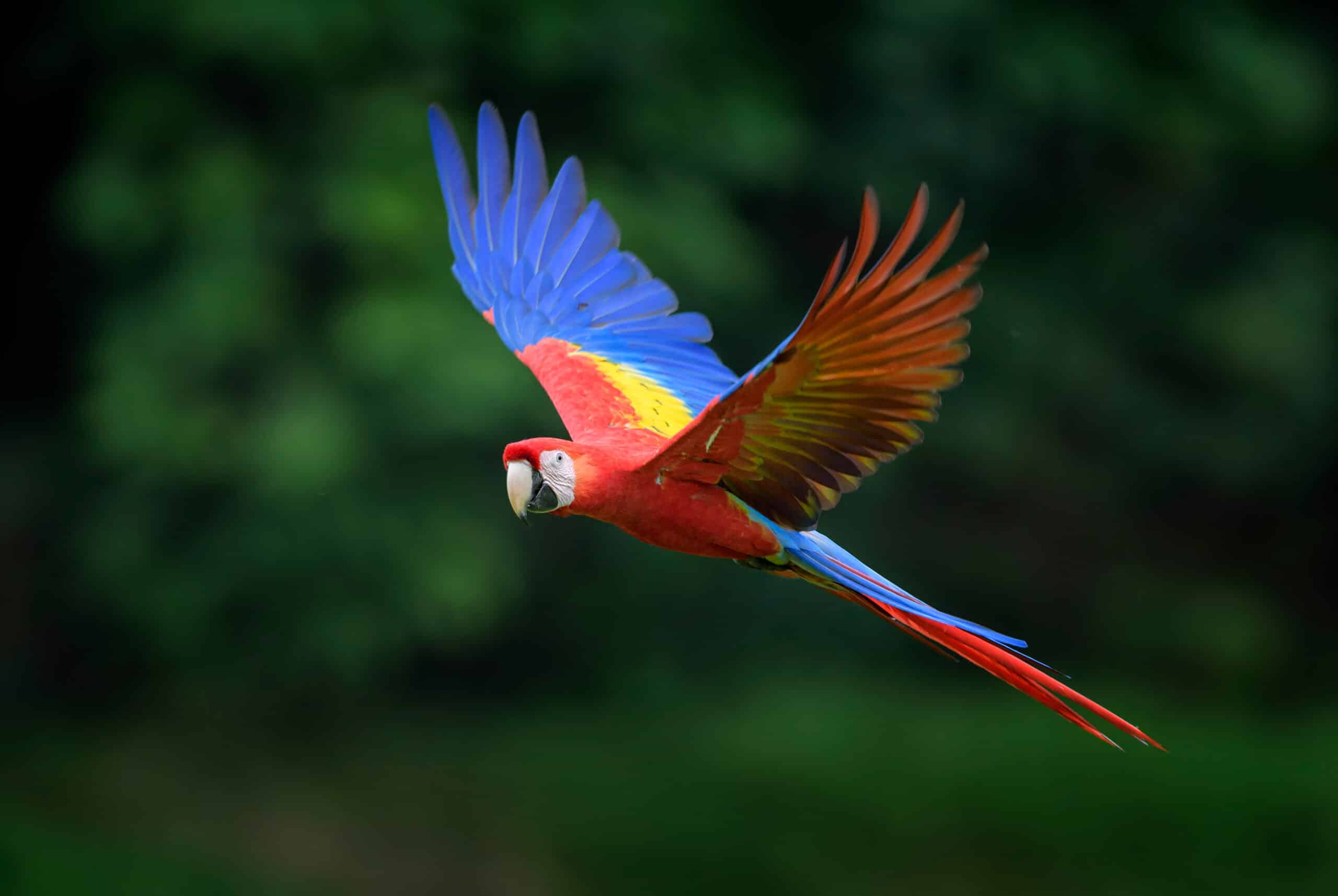By John Salak –
Ever wonder why some parrots live such long lives? Probably not, but just maybe it would be a good idea to take a closer look.
In general, parrots are extremely intelligent animals and some of the longest-living creatures on earth. Okay, maybe their average lifespan pales in comparison to Icelandic clams who can top 500 years old or Antarctic sponges that can live as long as 10,000 years. And, yes, parrots don’t live as long as giant tortoises, Greenland sharks or Bowhead whales, all of which can chug along for 200 years or more. But some parrots, particularly blue and yellow macaws, can live to be over 100 years old.
Those kinds of numbers for parrots are nothing to sneeze at. Plus, even if clams and sponges can live for 500 years or longer, who would want to talk to them anyway. Researchers at the Max Planck Institute of Animal Behavior in Germany probably had the same feeling when they decided to determine why parrots live so long. Their efforts led them to examine 217 parrot species, particularly focusing on scarlet macaws and sulfur-crested cockatoos because of their relatively long average lifespans of up to 30 years.
They speculated that these birds hang around so long because they have relatively large brains, which suggests they enjoy the smarts to stay out of trouble in the wild and elsewhere. Admittedly, parrot cognitive powers have long been viewed as a possible reason for their longevity, but that theory has been based largely on guesswork. “The problem has been sourcing good quality data,” says Simeon Smeele, a doctoral student at the institute and lead author of its study. “Comparative life-history studies require large sample sizes to provide certainty because many processes are a play at once and this creates a lot of variation,” he explained.
Getting a facts-based handle on the issue meant researchers had to draw records on more than 130,000 parrots held in over 1,000 zoos worldwide. The findings revealed the range of life spans from the fig parrot at just over two years to the scarlet macaw at about 30 years.
“Living an average of 30 years is extremely rare in birds of this size,” Smeele said. “Some individuals have a maximum lifespan of over 80 years, which is a respectable age even for humans. These values are really spectacular if you consider that a human male weighs about 100 times more.”
The next issue was how relative brain size fits into the equation. Bigger brains, as noted, may result in a parrot’s ability to avoid trouble. Yet another possibility is that bigger brains require more time to develop, consequently requiring birds to live longer. Their findings came down to bigger brains means better life-saving smarts.
“This supports the idea that in general larger brains make species more flexible and allow them to live longer,” Smeele exampled. “For example, if they run out of their favorite food, they could learn to find something new and thus survive.”
Does cultural learning play a role in living longer? Smeele and his team will tackle that possibility next. “Large-brained birds might spend more time socially learning foraging techniques that have been around for multiple generations,” he noted. “This increased learning period could potentially also explain the longer life spans, as it takes more time but also makes the foraging repertoire more adaptive.”
The German research team didn’t directly comment on what if anything people can draw from its conclusions. But relying on smarts is always a good survival strategy for animals in the wild or people in their communities.













